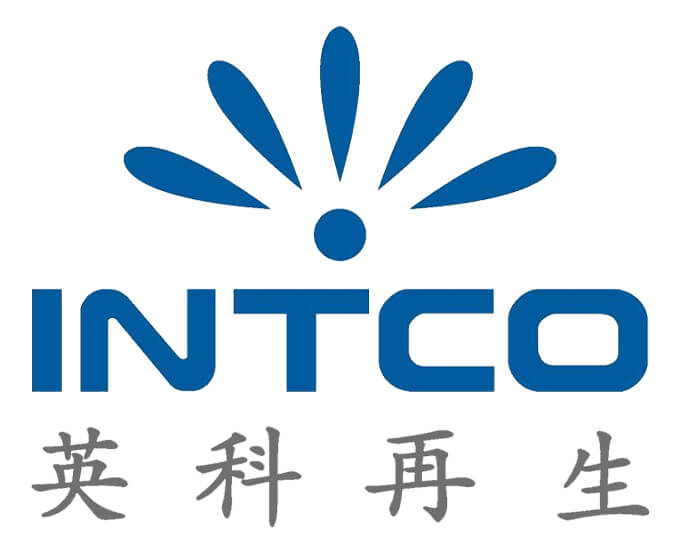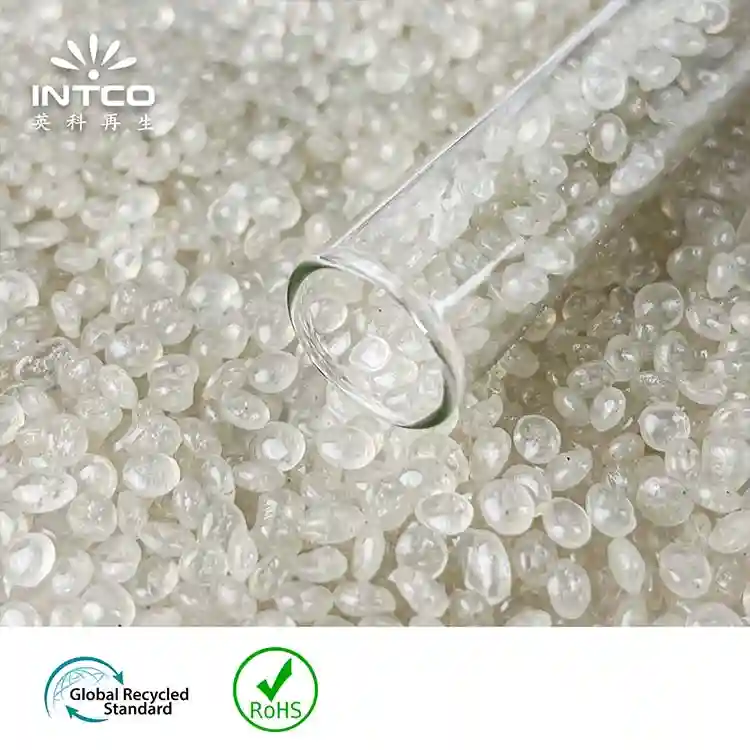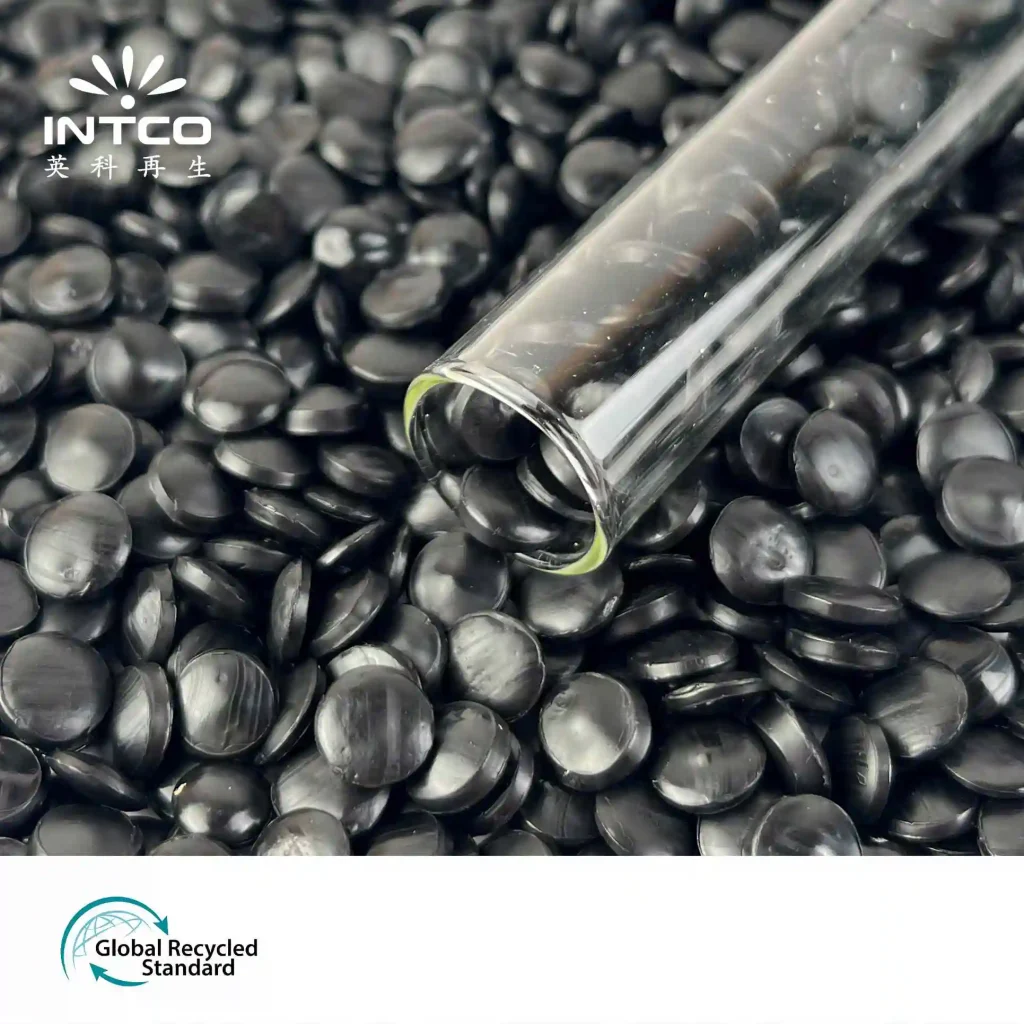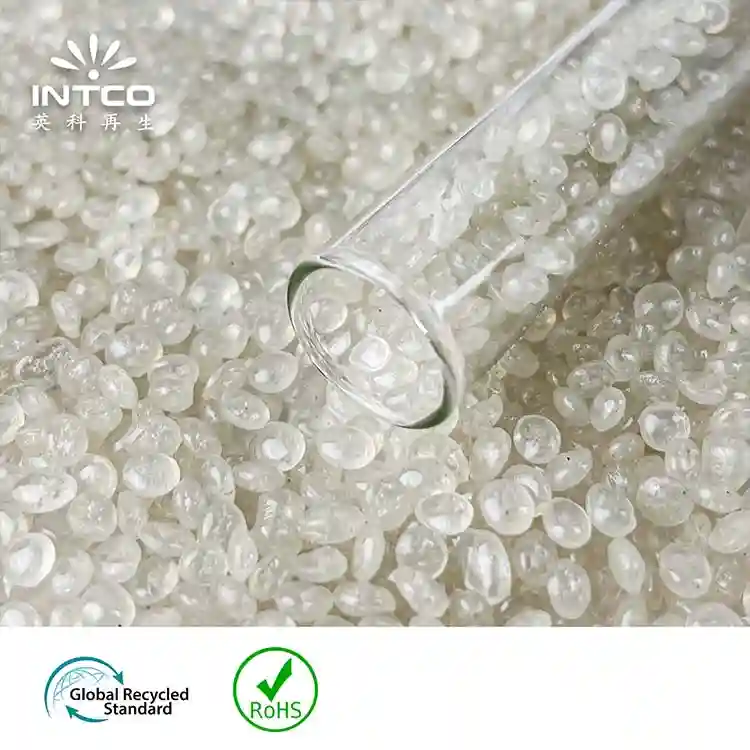Recycling has emerged as a pivotal component in driving economic growth across various sectors. The importance of recycling, particularly recycled polystyrene (rPS), cannot be overstated, as it presents numerous opportunities for both sustainability and profitability. By transitioning to rPS, companies not only contribute positively to environmental preservation but also strategically position themselves for enhanced economic performance. This article will delve into the economic benefits associated with using recycled polystyrene and explore how it can improve business profitability and overall efficiency.
The Role of Recycling in Economic Growth
Recycling plays a significant role in promoting economic growth through various avenues. It stimulates job creation in the recycling sector, with numerous industries emerging to handle the collection, processing, and manufacturing of recycled materials like rPS. Enhanced employment opportunities not only benefit workers but also invigorate local economies, making the recycling process an integral part of sustainable development strategies.
Furthermore, the increase in the recycling industry leads to enhanced tax revenues for municipalities and government entities. As businesses invest in recycling initiatives and infrastructure, they contribute to tax revenues which can be reinvested into community projects and services, thereby boosting overall economic stability. Additionally, the rise of competitive manufacturing industries focused on recycled materials fosters innovation and growth in sectors that utilize rPS, ultimately driving economic progress.
Cost Savings with Recycled rPS for Businesses
Integrating rPS into manufacturing processes leads to significant cost savings for businesses. One of the most impactful financial advantages is the reduction in raw material costs. By utilizing recycled polystyrene instead of virgin materials, companies can reduce their material expenses, which is particularly vital in a market characterized by fluctuating raw material prices. This strategic move not only helps protect the company’s profit margins but also allows for more competitive pricing in the market.
Another area where rPS can lead to substantial savings is waste disposal fees. With a strong focus on recycling, businesses can minimize their waste production, thereby reducing the costs associated with waste management and disposal. By lessening the volume of waste that needs to be processed, companies can allocate their financial resources more efficiently, enhancing overall operational efficiency.
In addition, using rPS can lead to savings on energy consumption. Manufacturing processes involving recycled materials often require less energy compared to those relying on virgin materials. This reduction in energy consumption translates to lower operational costs and promotes a more eco-friendly approach, aligning with global trends toward sustainability.
Improved Corporate Social Responsibility (CSR)
Businesses today are under increasing pressure to demonstrate robust corporate social responsibility (CSR) measures. Implementing recycling programs that focus on rPS not only contributes to environmental benefits but also bolsters a company’s reputation. By showcasing a commitment to sustainability, businesses can attract environmentally conscious consumers and clients who are increasingly favoring brands that reflect their values.
Consumer perception plays a crucial role in building brand loyalty. Companies that actively utilize recycled materials like rPS enhance their public image, making them more appealing to a broad customer base. As awareness of environmental issues rises, consumers are more inclined to support brands that prioritize sustainable practices, which can, in turn, lead to increased sales and market share.
Moreover, compliance with environmental regulations through the use of rPS not only promotes sustainable practices but also helps businesses avoid potential penalties. By adhering to established environmental standards, companies can safeguard themselves against legal issues and ensure they are operating within the regulatory framework, thus avoiding unexpected costs associated with fines or operational disruptions.
INTCO Recycling
Company Overview
INTCO Recycling is a leader in sustainable recycling practices, specifically focusing on the recycling of polystyrene (PS) waste. Established with a vision of creating a more sustainable future, the company has developed innovative processes to turn waste PS into high-quality recycled polystyrene (rPS) products. INTCO not only emphasizes eco-friendly practices but also aims to educate other businesses about the significance of recycling and the long-term benefits of adopting rPS practices.
Contributions to the rPS Market
INTCO Recycling has made substantial contributions to the rPS market by establishing a closed-loop recycling system. This system enables them to collect waste PS materials, transform them into rPS, and subsequently sell these materials to manufacturers looking for sustainable alternatives. By forging partnerships with various industries, INTCO has expanded the usage of rPS in products such as molded furniture, packaging materials, and insulation products. This initiative signifies a shift in the industry’s perception towards recycled materials, showcasing the value of rPS as a viable alternative to virgin materials and demonstrating its economic potential.
Case Examples
R-PS-B-Yellow-01
R-PS-B-Yellow-01, offered by INTCO MALAYSIA, is a pioneering product in the field of recycled materials. These PS pellets are meticulously crafted from global EPS waste foam, making them a sustainable alternative to traditional materials. Widely used in the production of XPS extruded insulation foam boards, R-PS-B-Yellow-01 can seamlessly replace GPPS material, significantly contributing to energy conservation and environmental protection. Boasting similar quality to GPPS in terms of compressive strength, density, thickness, and thermal conductivity, these pellets are a testament to the advancements in recycling technology. Furthermore, R-PS-B-Yellow-01 is certified with GRS, REACH, and ROHS, ensuring compliance with international standards and reinforcing its reliability.
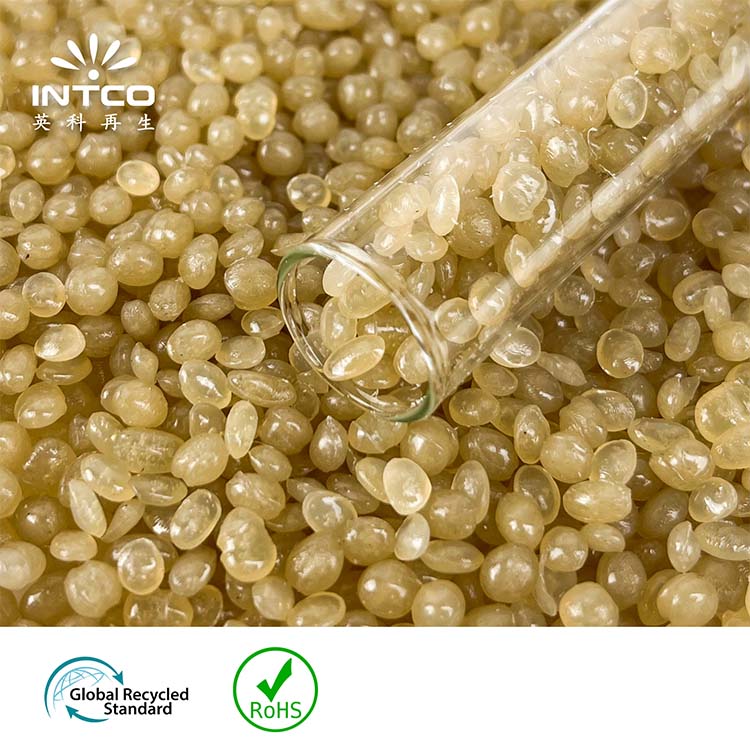
One of the key advantages of R-PS-B-Yellow-01 lies in its 100% GRS-certified status, signifying that the product is made entirely from recycled polystyrene. This not only reduces the environmental footprint but also promotes circular economy practices. Additionally, the pellets come in a uniform yellow color, offering a consistent aesthetic for various applications. The availability of both cylinder and sphere shapes further enhances their versatility, allowing manufacturers to tailor the product to their specific needs. Ultimately, the application of R-PS-B-Yellow-01 in XPS insulation foam boards underscores its practicality and environmental benefits, making it an ideal choice for businesses seeking sustainable solutions.
R-HIPS-805
R-HIPS-805 showcases the innovative use of recycled materials, specifically sourced from home appliance casings like refrigerators and washing machines. This eco-friendly approach not only reduces waste but also promotes sustainability in the manufacturing industry. The resin composition of R-HIPS-805 comprises high impact polystyrene, a material known for its durability and resistance to impact, ensuring the product’s longevity and reliability.

The R-HIPS-805 lies in its uniform grey color, which provides a sleek and professional aesthetic, making it suitable for a wide range of applications. Furthermore, the product boasts high purity and low impurity content, thanks to rigorous recycling processes that ensure the removal of contaminants and impurities. This ensures that R-HIPS-805 meets stringent quality standards, making it an attractive choice for manufacturers seeking to incorporate recycled materials into their production processes without compromising on performance or appearance.
Long-term Economic Impacts of rPS Adoption
Enhanced Competitive Edge in the Market
The adoption of recycled polystyrene (rPS) can provide companies with an enhanced competitive edge in various market sectors. As consumers increasingly prioritize sustainability, businesses that integrate rPS into their products can differentiate themselves from competitors. This strategic positioning not only appeals to eco-conscious consumers but also positions brands as forward-thinking and socially responsible, which can lead to increased customer loyalty and higher sales.
Furthermore, incorporating rPS enables companies to align with global sustainability goals, which can enhance their appeal to investors. Investors are generally inclined to support businesses that prioritize sustainable practices, leading to a more robust financial standing. By leveraging the benefits of rPS, companies can effectively communicate their commitment to sustainability, attracting funding and partnerships that support growth and innovation.
Companies embracing rPS can also expand their market reach by offering products that meet emerging ecological standards and certifications. As regulations surrounding environmental sustainability tighten, firms focused on integrating recycled materials like rPS stand to gain vital market access and adhere to compliance mandates, resulting in a broader customer base.
Sustainable Growth and Profitability
The integration of rPS into manufacturing processes fosters sustainable growth and profitability for companies embarking on this journey. By leveraging recycled materials, businesses often achieve cost efficiencies that contribute to their bottom line. As the use of rPS helps minimize raw material expenses, firms can enjoy healthier profit margins and reinvest those savings into research, development, or expansion efforts.
Moreover, transitioning to rPS encourages investment in advanced recycling technologies and processes, paving the way for the development of innovative products that can capture additional market share. This progressive approach allows companies to stay competitive within rapidly evolving industries, ensuring they remain at the forefront of sustainability while increasing profitability.
Long-term Resource Management and Conservation
Long-term resource management is one of the critical economic benefits associated with the adoption of rPS. By utilizing recycled materials like rPS, companies contribute to a circular economy model that emphasizes the importance of resource conservation and environmental stewardship. This model not only reduces dependency on virgin materials but also lowers the overall resource extraction and processing costs, which can be significant savings over time.
Moreover, effective resource management decreases the carbon footprint associated with manufacturing and fosters relationships with supply chains that prioritize sustainability. As companies establish themselves as leaders in sustainable practices through rPS adoption, they can cultivate partnerships with other organizations that share similar values, leading to mutual benefits that enhance resource management strategies.
Conclusion
To sum up, transitioning to recycled polystyrene (rPS) offers numerous economic benefits for businesses, facilitating sustainable growth and enhanced efficiency. Companies like INTCO Recycling have set a precedent by illustrating the substantial advantages that rPS can deliver, encouraging other organizations to adopt similar practices. As businesses continue to prioritize sustainability, the innovations and practices surrounding rPS will likely shape the future of manufacturing and contribute to a more sustainable economic model.
